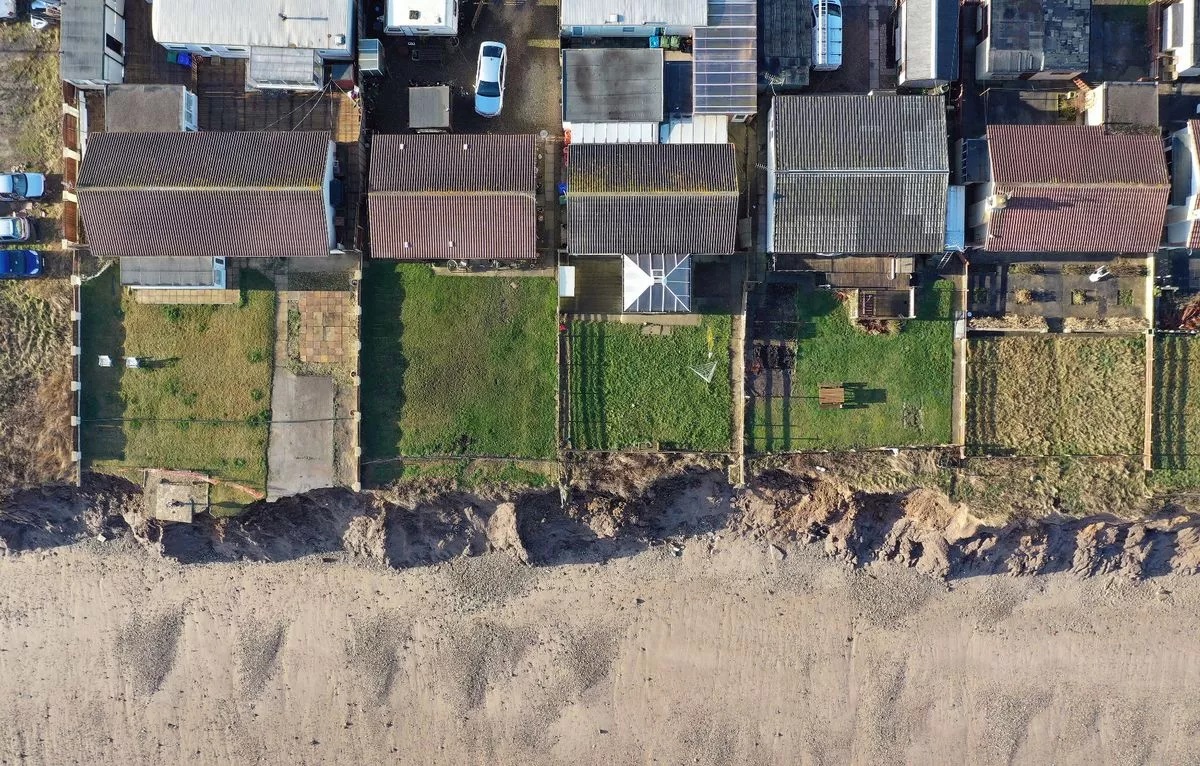NATURE → Coastal Erosion
I don't think it is very smart to live too close to a rapidly eroding coastline!
The sea, with its wind driven waves and occilating tides pound most coastlines, so over time the affected coastlines will breakdown and erode.
The speed of erosion will depend principally on the nature of the nature uf the local geology and whether that area is undergoing isostatic adjustment or not. Stable hard rocks such as granite or basalt will erode very slowly, over many years, even over centuaries. In these cases it is relatively safe to live close to the coastline. Soft rocks such as mudstones, siltstones or sands, however, will erode much faster. Storm surges can also have a dramatic effect on soft rock coastlines causing significant erosion very rapidly, over weeks or even days. Soft rock coastline are therefore more risky places to live.
It is eatimated that in the UK, 3,000km of costline is experiencing erosion, with 28% of the coast in England and Wales eroding at rates exceeding 0.1m/year. In Scotland coastal erosion is less severe due to fact that this area of the UK is rising isostaticaslly and has extensive areas of hard geology. Sea level rise due to climate change may also have a marked effect on the extent and speed of coatal erosion

Holiday chalets abandoned due to coastal erosion near the village of Withernsea, East Riding of Yorkshire.
Source: The Guardian. See: https://www.theguardian.com/environment/2020/jan/19/treat-coastal-erosion-as-natural-catastrophe-uk-ministers-urged-east-yorkshire?CMP=Share_iOSApp_Other

Coastal erosion is eating away the clifftops at Skipsea, Hull, East Yorkshire
Source: Hull Daily Mail. See: https://www.hulldailymail.co.uk/news/hull-east-yorkshire-news/residents-homes-erosion-skipsea-coast-3769415